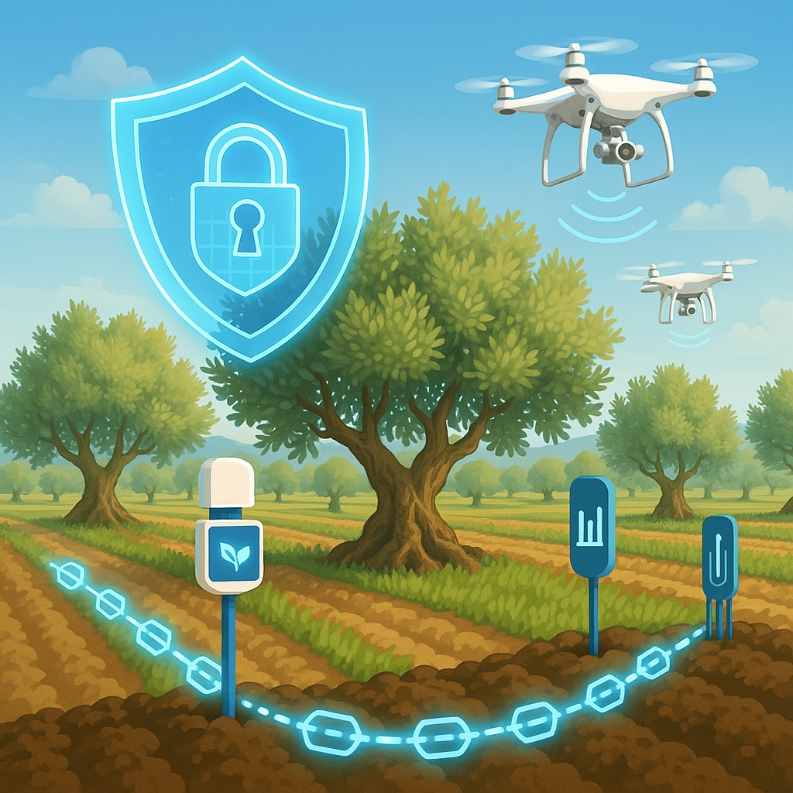As agriculture embraces digital transformation, the integration of IoT sensors, drones, blockchain, and AI is revolutionizing how food is produced, processed, and delivered. However, this digital leap also introduces new vulnerabilities. The CyberNEMO project is addressing these challenges through a dedicated trial focused on smart farming and agri-food supply chains.
The project explores how cybersecurity can enhance traceability, transparency, and trust in the production of organic olive oil—from the olive grove to the supermarket shelf.
The Use Case: From Tree to Table
The use case centers on the monitoring and auditing of organic olive oil production. This includes:
-
Growing conditions monitored by IoT sensors and drones
-
Harvesting and milling tracked via smart devices and robots
-
Bottling, storage, and transport secured through blockchain and digital twins
These technologies ensure that every step of the process is observable and verifiable, enabling stakeholders and consumers to trace the product’s journey and verify its quality.
However, the reliance on unattended, rural IoT devices introduces significant cybersecurity risks. Devices may be physically tampered with, infected with malicious firmware, or used as entry points for broader attacks
From Cybersecurity to Trust and Sustainability
CyberNEMO’s approach goes beyond technical protection. It enables:
-
Accountability: Through audit logs and timestamped data
-
Transparency: Via blockchain-backed traceability
-
Resilience: With self-healing systems and secure federated learning
-
Compliance: With GDPR, the AI Act, and the Data Act
By embedding cybersecurity into the entire agri-food lifecycle, CyberNEMO ensures that digital farming is not only efficient but also trustworthy and sustainable.
Cybersecurity in agriculture is no longer optional—it’s essential. As food systems become smarter, they must also become more secure. CyberNEMO demonstrates how cutting-edge technologies can be harmonized with ethical and regulatory safeguards to protect both data and food integrity.
This trial offers a replicable model for cybersecure, transparent, resilient, trustworthy and ethical food supply chains, paving the way for a more sustainable agri-tech future.

